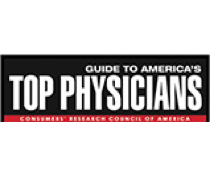Summer has arrived on the East Coast, and after a long, cold winter, there is nothing New Yorkers are looking forward to more than soaking up the sun. However, as the temperatures rise, it’s important to take the necessary precautions to stay safe in the summer heat.
Whether you’re training for a marathon, playing a game of basketball, or even just walking through the park, exercising in the summer months puts added stress on our bodies and increases the likelihood of heat exhaustion and heat stroke, so I’ve put together a few tips to help you stay cool and safe while active this summer.
- Acclimate yourself to the change in heat and humidity levels. It can take up to 14 days for your body to adjust to temperature changes. Expose yourself regularly to the outdoor heat without engaging in physical activity in order to gradually become accustomed to the summer’s rising temperatures. While your body is adapting, beat the heat and exercise in the mornings or evenings when it is cooler outside!
- Don’t try to “sweat off” pounds. The weight you shed from sweating is water your body needs! These fluids need to be replenished after exercise. The best way to stay hydrated is to consume the amount of water lost during physical activity. Weigh yourself after workouts—one pound lost is equal to 16 ounces of water your body needs replaced, so don’t wait until you’re thirsty to drink!
- Sunscreen without sun? It’s very important to wear sunscreen any time you’re outside in the morning, afternoon and evening. Approximately 40 percent of the sun’s ultraviolet rays still reach the earth on cloudy days. Sunburn is not only bad for the health of your skin, but it also inhibits your body’s ability to cool itself down after exercise.
- Slow down your cool down. Time is the key to cooling off your body properly after a workout. Don’t come inside after an afternoon run and immediately stand in front of a high-speed fan. Drastic changes in temperature can be dangerous to your body. Instead, try to cool off your body gradually—concentrate on your breathing, engage in cool down exercises, and drink plenty of water.
- Ask your doctor. Some the effects of some prescription and over-the-counter medicines can be intensified in heat. Be sure you consult your physician to understand any changes in your medicine’s side effects due to the increased temperatures in summer months. Decongestants, appetite suppressants, antihistamines, antihypertensives, and antidepressants have been known to quicken dehydration.
Don’t let the rising temperatures keep your workouts indoors! Knowing the symptoms of heat exhaustion and heat stroke will help you understand your body’s limits. Summer is the perfect time to be outdoors, but be sure to exercise caution and listen to your body so you don’t overexert yourself.










